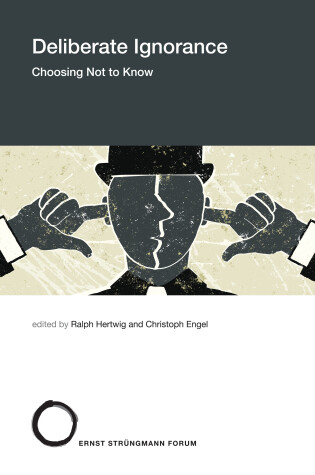Strüngmann Forum Reports
1 primary work
Book 29
Deliberate Ignorance
Published 2 March 2021
Psychologists, economists, historians, computer scientists, sociologists, philosophers, and legal scholars explore the conscious choice not to seek information.
The history of intellectual thought abounds with claims that knowledge is valued and sought, yet individuals and groups often choose not to know. We call the conscious choice not to seek or use knowledge (or information) deliberate ignorance. When is this a virtue, when is it a vice, and what can be learned from formally modeling the underlying motives? On which normative grounds can it be judged? Which institutional interventions can promote or prevent it? In this book, psychologists, economists, historians, computer scientists, sociologists, philosophers, and legal scholars explore the scope of deliberate ignorance.
The history of intellectual thought abounds with claims that knowledge is valued and sought, yet individuals and groups often choose not to know. We call the conscious choice not to seek or use knowledge (or information) deliberate ignorance. When is this a virtue, when is it a vice, and what can be learned from formally modeling the underlying motives? On which normative grounds can it be judged? Which institutional interventions can promote or prevent it? In this book, psychologists, economists, historians, computer scientists, sociologists, philosophers, and legal scholars explore the scope of deliberate ignorance.
